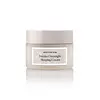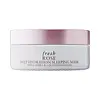What's inside
What's inside
 Key Ingredients
Key Ingredients

 Benefits
Benefits

 Concerns
Concerns

 Ingredients Side-by-side
Ingredients Side-by-side

Water
Skin ConditioningCaprylic/Capric Triglyceride
MaskingGlycerin
HumectantCaprylic/Capric/Myristic/Stearic Triglyceride
EmollientCetearyl Alcohol
EmollientSqualane
EmollientPropanediol
SolventGlyceryl Stearate
EmollientPolymethyl Methacrylate
Terminalia Ferdinandiana Fruit Extract
AntioxidantAmmonium Acryloyldimethyltaurate/Vp Copolymer
Caprylyl Glycol
EmollientAcrylates/C10-30 Alkyl Acrylate Crosspolymer
Emulsion StabilisingPhospholipids
Skin ConditioningSodium Hydroxide
BufferingTremella Fuciformis Sporocarp Extract
AntioxidantHyaluronic Acid
HumectantSphingolipids
EmollientSodium Dehydroacetate
PreservativePhenoxyethanol
PreservativeBetaine
HumectantHoney
HumectantPotassium Sorbate
PreservativePolysorbate 20
EmulsifyingHexylene Glycol
EmulsifyingWater, Caprylic/Capric Triglyceride, Glycerin, Caprylic/Capric/Myristic/Stearic Triglyceride, Cetearyl Alcohol, Squalane, Propanediol, Glyceryl Stearate, Polymethyl Methacrylate, Terminalia Ferdinandiana Fruit Extract, Ammonium Acryloyldimethyltaurate/Vp Copolymer, Caprylyl Glycol, Acrylates/C10-30 Alkyl Acrylate Crosspolymer, Phospholipids, Sodium Hydroxide, Tremella Fuciformis Sporocarp Extract, Hyaluronic Acid, Sphingolipids, Sodium Dehydroacetate, Phenoxyethanol, Betaine, Honey, Potassium Sorbate, Polysorbate 20, Hexylene Glycol
Rosa Damascena Flower Water
MaskingWater
Skin ConditioningGlycerin
HumectantPentylene Glycol
Skin ConditioningPEG-60 Hydrogenated Castor Oil
EmulsifyingRosa Damascena Flower Extract
MaskingCucumis Sativus Fruit Extract
EmollientRosa Damascena Flower Oil
MaskingTocopherol
AntioxidantCarbomer
Emulsion StabilisingSodium Hydroxide
BufferingTetrasodium EDTA
Sodium Hyaluronate
HumectantMenthoxypropanediol
MaskingCaprylic/Capric Triglyceride
MaskingCaramel
Cosmetic Colorant1,2-Hexanediol
Skin ConditioningCaprylyl Glycol
EmollientPhenoxyethanol
PreservativeCitronellol
PerfumingGeraniol
PerfumingDicaprylyl Carbonate
EmollientPropanediol
SolventAmmonium Acryloyldimethyltaurate/Vp Copolymer
Dimethicone
EmollientOenothera Biennis Root Extract
Skin ConditioningTocopheryl Acetate
AntioxidantButylene Glycol
HumectantDimethicone/Vinyl Dimethicone Crosspolymer
Skin ConditioningPolyacrylamide
C13-14 Isoparaffin
EmollientHydroxylated Lecithin
EmulsifyingTrehalose
HumectantUrea
BufferingLaureth-7
EmulsifyingSerine
MaskingBetaine
HumectantInositol
HumectantTaurine
BufferingAlgin
MaskingBHT
AntioxidantAcacia Senegal Gum
MaskingGlyceryl Polyacrylate
Pullulan
Citric Acid
BufferingDisodium Phosphate
BufferingPotassium Phosphate
BufferingPotassium Sorbate
PreservativeRosa Damascena Flower Water, Water, Glycerin, Pentylene Glycol, PEG-60 Hydrogenated Castor Oil, Rosa Damascena Flower Extract, Cucumis Sativus Fruit Extract, Rosa Damascena Flower Oil, Tocopherol, Carbomer, Sodium Hydroxide, Tetrasodium EDTA, Sodium Hyaluronate, Menthoxypropanediol, Caprylic/Capric Triglyceride, Caramel, 1,2-Hexanediol, Caprylyl Glycol, Phenoxyethanol, Citronellol, Geraniol, Dicaprylyl Carbonate, Propanediol, Ammonium Acryloyldimethyltaurate/Vp Copolymer, Dimethicone, Oenothera Biennis Root Extract, Tocopheryl Acetate, Butylene Glycol, Dimethicone/Vinyl Dimethicone Crosspolymer, Polyacrylamide, C13-14 Isoparaffin, Hydroxylated Lecithin, Trehalose, Urea, Laureth-7, Serine, Betaine, Inositol, Taurine, Algin, BHT, Acacia Senegal Gum, Glyceryl Polyacrylate, Pullulan, Citric Acid, Disodium Phosphate, Potassium Phosphate, Potassium Sorbate
 Reviews
Reviews

Ingredients Explained
These ingredients are found in both products.
Ingredients higher up in an ingredient list are typically present in a larger amount.
Ammonium Acryloyldimethyltaurate/Vp Copolymer (let's call it AAVC for short) is a synthetically created polymer. It's used as a film-forming agent and used to thicken the consistency of products.
AAVC is able to increase the consistency and viscosity of products due to its large molecule size. It also prevents ingredients from separating.
Betaine is a common humectant (a substance that promotes retention of moisture). It's known to be gentle on the skin and can help balance hydration.
This ingredient is best for improving hydration and soothing irritated skin. Studies also show it helps even out skin tone.
Fun fact: Betaine is naturally created in the skin and body. The kind found within cosmetic products can be either plant-derived or synthetic.
Another name for betaine is trimethylglycine.
Learn more about BetaineThis ingredient is an emollient, solvent, and texture enhancer. It is considered a skin-softener by helping the skin prevent moisture loss.
It helps thicken a product's formula and makes it easier to spread by dissolving clumping compounds.
Caprylic Triglyceride is made by combining glycerin with coconut oil, forming a clear liquid.
While there is an assumption Caprylic Triglyceride can clog pores due to it being derived from coconut oil, there is no research supporting this.
Learn more about Caprylic/Capric TriglycerideCaprylyl Glycol is a humectant and emollient, meaning it attracts and preserves moisture.
It is a common ingredient in many products, especially those designed to hydrate skin. The primary benefits are retaining moisture, skin softening, and promoting a healthy skin barrier.
Though Caprylyl Glycol is an alcohol derived from fatty acids, it is not the kind that can dry out skin.
This ingredient is also used as a preservative to extend the life of products. It has slight antimicrobial properties.
Learn more about Caprylyl GlycolGlycerin is already naturally found in your skin. It helps moisturize and protect your skin.
A study from 2016 found glycerin to be more effective as a humectant than AHAs and hyaluronic acid.
As a humectant, it helps the skin stay hydrated by pulling moisture to your skin. The low molecular weight of glycerin allows it to pull moisture into the deeper layers of your skin.
Hydrated skin improves your skin barrier; Your skin barrier helps protect against irritants and bacteria.
Glycerin has also been found to have antimicrobial and antiviral properties. Due to these properties, glycerin is often used in wound and burn treatments.
In cosmetics, glycerin is usually derived from plants such as soybean or palm. However, it can also be sourced from animals, such as tallow or animal fat.
This ingredient is organic, colorless, odorless, and non-toxic.
Glycerin is the name for this ingredient in American English. British English uses Glycerol/Glycerine.
Learn more about GlycerinPhenoxyethanol is a preservative that has germicide, antimicrobial, and aromatic properties. Studies show that phenoxyethanol can prevent microbial growth. By itself, it has a scent that is similar to that of a rose.
It's often used in formulations along with Caprylyl Glycol to preserve the shelf life of products.
Potassium Sorbate is a preservative used to prevent yeast and mold in products. It is commonly found in both cosmetic and food products.
This ingredient comes from potassium salt derived from sorbic acid. Sorbic acid is a natural antibiotic and effective against fungus.
Both potassium sorbate and sorbic acid can be found in baked goods, cheeses, dried meats, dried fruit, ice cream, pickles, wine, yogurt, and more.
You'll often find this ingredient used with other preservatives.
Learn more about Potassium SorbatePropanediol is an all-star ingredient. It softens, hydrates, and smooths the skin.
It’s often used to:
Propanediol is not likely to cause sensitivity and considered safe to use. It is derived from corn or petroleum with a clear color and no scent.
Learn more about PropanediolSodium Hydroxide is also known as lye or caustic soda. It is used to adjust the pH of products; many ingredients require a specific pH to be effective.
In small amounts, sodium hydroxide is considered safe to use. However, large amounts may cause chemical burns due to its high alkaline.
Your skin has a natural pH and acid mantle. This acid mantle helps prevent harmful bacteria from breaking through. The acid mantle also helps keep your skin hydrated.
"Alkaline" refers to a high pH level. A low pH level would be considered acidic.
Learn more about Sodium HydroxideWater. It's the most common cosmetic ingredient of all. You'll usually see it at the top of ingredient lists, meaning that it makes up the largest part of the product.
So why is it so popular? Water most often acts as a solvent - this means that it helps dissolve other ingredients into the formulation.
You'll also recognize water as that liquid we all need to stay alive. If you see this, drink a glass of water. Stay hydrated!
Learn more about Water